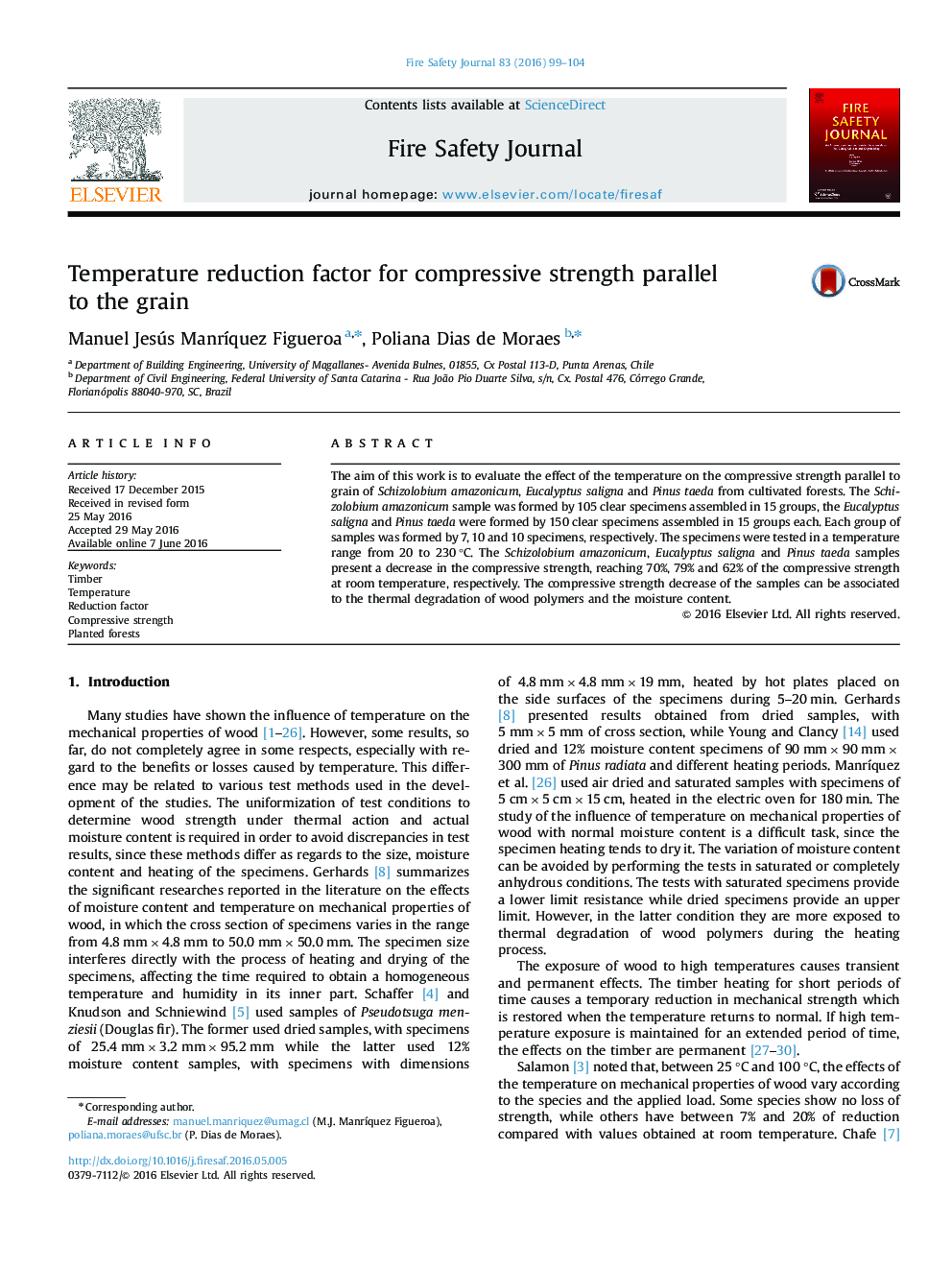| کد مقاله | کد نشریه | سال انتشار | مقاله انگلیسی | نسخه تمام متن |
|---|---|---|---|---|
| 269692 | 504693 | 2016 | 6 صفحه PDF | دانلود رایگان |
• The temperature reduction factor for the compressive strength is determined.
• Rupture patterns and checking of specimens are associated with temperature levels.
• Between 20 and 70 °C, reduction factors agree with the codes.
• Above 70 °C, those factors are higher than those proposed by the codes.
The aim of this work is to evaluate the effect of the temperature on the compressive strength parallel to grain of Schizolobium amazonicum, Eucalyptus saligna and Pinus taeda from cultivated forests. The Schizolobium amazonicum sample was formed by 105 clear specimens assembled in 15 groups, the Eucalyptus saligna and Pinus taeda were formed by 150 clear specimens assembled in 15 groups each. Each group of samples was formed by 7, 10 and 10 specimens, respectively. The specimens were tested in a temperature range from 20 to 230 °C. The Schizolobium amazonicum, Eucalyptus saligna and Pinus taeda samples present a decrease in the compressive strength, reaching 70%, 79% and 62% of the compressive strength at room temperature, respectively. The compressive strength decrease of the samples can be associated to the thermal degradation of wood polymers and the moisture content.
Journal: Fire Safety Journal - Volume 83, July 2016, Pages 99–104
